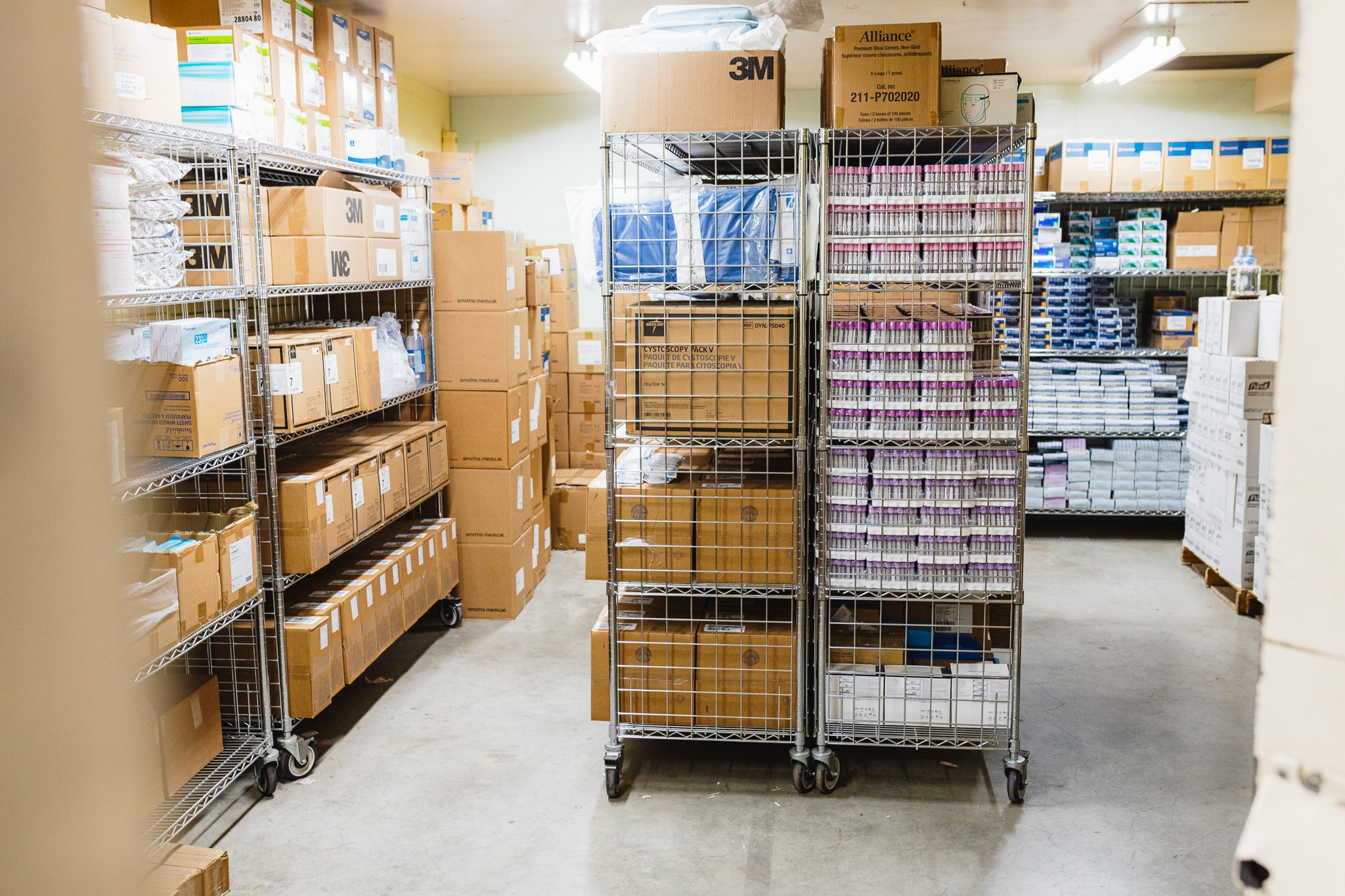
Baby formula shortage impacting children with medically complex needs
The shortage of infant formula originating from a shut-down of a large manufacturing plant in the United States has some Canadian parents worrying about how to feed their infants if their preferred formula is out of stock.
Dr. Nikhil Pai, pediatric gastroenterologist and co-chair of McMaster Children’s Hospital (MCH)’s Pediatric Nutrition Advisory Committee along with co-chair Jennifer Fabe, pediatric dietitian with the Division of Neurology, say the shortage is less of a concern for the majority of children who are able to consume so-called “commercial” or cow’s-milk based infant formulas.
Instead, the serious concern is for children who are not able to use commercial formulas and who rely on medically necessary, specialized formulas for severe allergic disorders and metabolic disorders.
“We recognize it can be extremely anxiety provoking for parents when their preferred formula brand is unavailable,” says Pai. “But there are alternatives for most commercially-available formulas that can be interchangeable.”
Information for families during the shortage of formula for infants with food allergies.
Government of Canada website
Information Sheet
Cow’s-milk based formulas are marketed differently, but can be virtually identical
When the large American manufacturing plant of baby formula was shut down due to bacterial contamination in their products, it created major issues with global distribution. Products affected included commercial and specialized infant formulas. This created a ripple effect of back-orders on other available formulas, affecting many families.
While there are still shortages of several commercially available formulas, there are more alternatives that work for children without serious medical needs.
A lot of different cow’s milk-based formulas are very similar but just get marketed differently based on minor differences, says Pai, making it confusing for families who are used to a specific brand.
Parents might be able to switch to something else and reserve the medically necessary category for other kids. For example, if your child was started on a specialized formula but is now taking several different foods, you may also be able to switch to a cow’s milk-based formula.
“It’s really not recommended to make your own formula at home,” says Pai. “We also really caution against watering down the formula to try and make it last longer. If there’s any possibility of continuing with breastfeeding or expressed breastmilk, that is always the first choice but it’s also important to not accept donor milk that isn’t medically approved, or to give a child cow’s milk before 10-12 months of age.”
Dr. Pai says to speak to your healthcare provider and/or dietitian.
“They are often in the best position to say whether your child is doing well and if you can challenge them to try another formula. They can work through what symptoms they’re having and try to figure out if it’s reflux, constipation, or just age-appropriate pickiness – instead of switching to a specialized medical formulas that may not be necessary.”
No alternatives for specialized medical formulas
For children with medically necessary needs, running out of a special formula is like running out of a life-saving drug.
These specialized formulas are used for children with severe allergies, gastrointestinal conditions or rare metabolic disorders where the body isn’t able to properly break down food into nutrients.
For some of these children, including those who are fed using a feeding tube, these specialized formulas are not only their sole source of nutrition but also the treatment for their medical condition. They are not able to just purchase another product if these formulas are unavailable.
“These products are medically necessary. There are patients that have nothing else going through their tube because they just can’t tolerate it,” says Pai.
Pai and Fabe recommend speaking to your provider or registered dietitian if your medically necessary formula is unavailable.
“We’re all struggling to find alternatives, but we are trying our best to be creative,” he says. Plus, there is extensive advocacy happening behind the scenes to ensure alternatives are available.
The MCH Pediatric Nutrition Advisory Committee was able to bring other pediatric nutrition specialists from across Ontario’s pediatric hospitals together to address strategies. Health Canada has also been able to develop interim policies to get product imported from Europe and the U.S. to backfill these specialized formulas. There is very limited stock in certain hospitals like MCH and many retailers are completely sold out.
“We’re all working very hard to liaise with formula companies and government daily, to understand where stock is available across the province.”
Providers, please prescribe only as necessary
Hospitals are strongly advocating for the judicious prescribing of medically necessary formulas by health care providers in order to keep it available for those children who need them most.
If providers are unsure if they can challenge an infant with another formula that is less specialized, Pai and Fabe encourage them to reach out to experts at MCH for guidance on whether they can try something different, such as a soy-based formula, which is more widely available.
“We ask providers to really scrutinize their reasons when putting an infant on a specialized formula, since we just don’t have the same capacity for prescribing these as we did before,” says Pai.
Moving forward
The MCH Pediatric Nutrition Advisory Committee and other partners recognize and acknowledge the formula shortage is a problem and are advocating for faster and more efficient regulatory processes, and improved, urgent procurement strategies for Canada to accept formula from other countries. In the future, the groups will evaluate having multiple suppliers, greater inventory, and other supply chain strategies.
The MCH Pediatric Nutrition Advisory Committee and pediatric nutrition specialists from across Ontario, including CHEO, London Health Sciences, and SickKids, continue to discuss opportunities for further advocacy.





